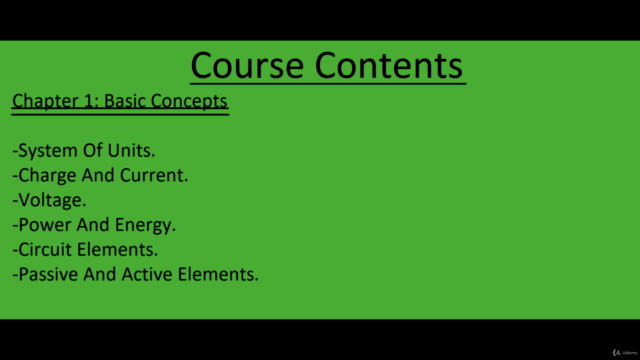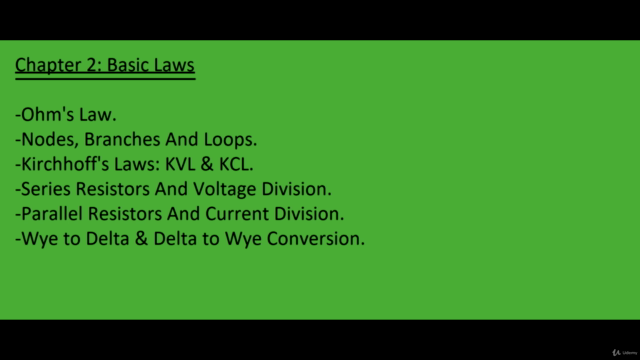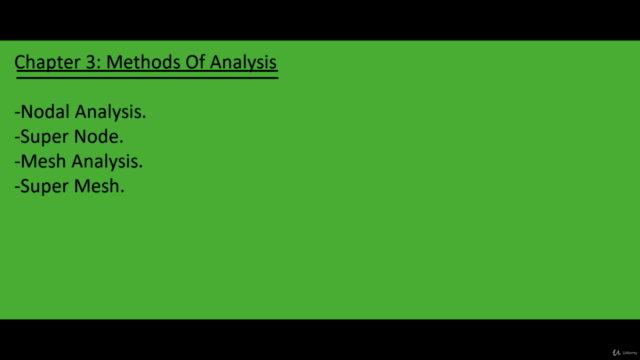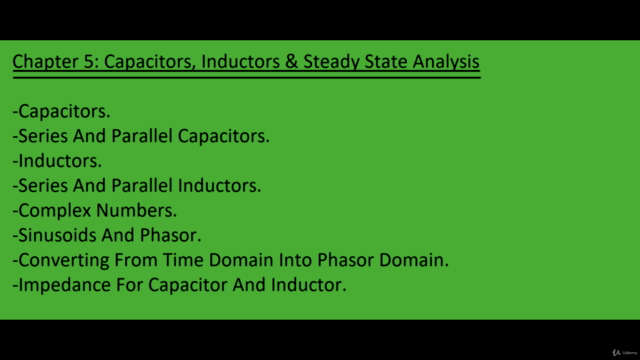Electric Circuits

Why take this course?
🌟 Master Electric Circuits: From Basics to Advanced Analysis ⚡️ GroupLayout your understanding of electric circuits with this comprehensive course designed for all levels, from beginners to seasoned engineers. Join Ibrahim Muakkit, an expert in the field, as he guides you through the fascinating world of electrical engineering.
📘 Course Overview: This course is a deep dive into the fundamental concepts and advanced techniques used to analyze and design electric circuits. You will gain hands-on experience with both theoretical and practical applications.
What You'll Learn:
-
Foundations of Electrical Engineering 🏗️:
- System of Units (SI): Understand the international system of units and its importance in measurement consistency.
- Charge & Current: Discover the fundamental concepts that drive electric circuits.
- Voltage, Power & Energy: Learn how to calculate and apply these key components to real-world scenarios.
-
Circuit Components & Analysis Techniques:
- Circuit Elements: Explore passive and active elements, and learn their roles in circuit design.
- Ohm's Law: Master the relationship between voltage, current, and resistance.
- Node & Branch & Loop Analysis: Dive into the methods for analyzing complex networks using Kirchhoff's laws (KCL, KVL).
-
Circuit Configuration & Advanced Theorems:
- Series & Parallel Resistors: Understand division techniques and how to maximize power transfer in circuits.
- Wye to Delta & Delta to Wye Conversion: Learn the transformations for optimizing complex circuit configurations.
- Nodal Analysis & Supernode Techniques: Apply these powerful methods to solve large-scale networks efficiently.
- Mesh Analysis & Supermesh Techniques: Gain expertise in another critical approach to circuit analysis.
-
Frequency Domain Analysis:
- Superposition, Source Transformation: Learn how to simplify complex circuits with multiple sources.
- Thevenin's & Norton's Theorems: Master the art of converting any linear circuit into an equivalent two-component circuit for easier analysis.
- Maximum Power Transfer Theorem: Understand how to design circuits to transfer maximum power from a source to a load.
-
Reactance Components:
- Capacitors & Inductors: Study the behavior of these components and their effects on circuit performance.
- Series & Parallel Configurations: Learn how to combine them for optimal circuit design.
-
Complex Numbers, Sinusoids, Phasors:
- Complex Numbers: Explore the mathematical tool that simplifies AC circuit analysis.
- Sinusoids & Phasors: Transform time-domain circuits into phasor domain for easier computation and understanding of waveforms in AC circuits.
-
Impedance for Capacitors & Inductors:
- Gain insights into the complex impedance of capacitive and inductive components, and how to incorporate them into circuit analysis.
By the end of this course, you will have a solid understanding of electric circuits and be able to apply these concepts to design and analyze practical electrical systems. Whether you're an electrical engineering student, a professional looking to enhance your skill set, or a hobbyist eager to explore more about electronics, this course offers valuable knowledge that will serve as a cornerstone for your future endeavors in the field of electrical engineering.
🚀 Enroll Now and Electrify Your Career! 🎓
Course Gallery




Loading charts...